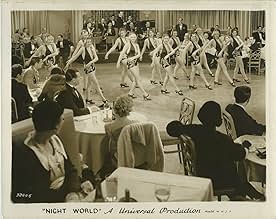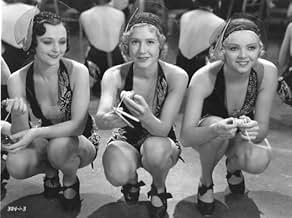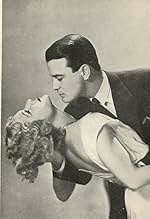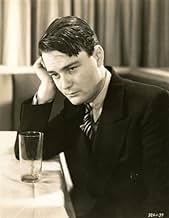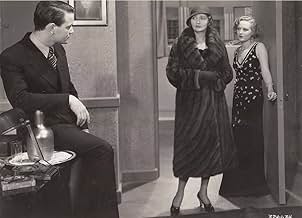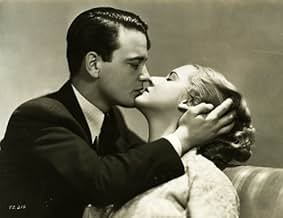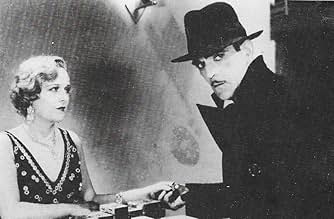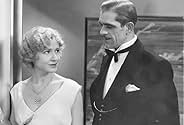Story of the goings-on at a Prohibition-era nightclub.Story of the goings-on at a Prohibition-era nightclub.Story of the goings-on at a Prohibition-era nightclub.
- Director
- Writers
- Stars
Alice Adair
- Chorine
- (uncredited)
Consuelo Baker
- Chorus Girl
- (uncredited)
Frank Beal
- Bit
- (uncredited)
Louise Beavers
- Maid
- (uncredited)
- Director
- Writers
- All cast & crew
- Production, box office & more at IMDbPro
Featured reviews
You can certainly tell that "Night World" is a pre-code picture. It's set in a speakeasy--just the sort of sordid locale that wouldn't have been allowed after the new Production Code went into effect in mid-1934. Of course, by then alcohol was legal and speakeasies were a thing of the past anyways. The film is very much like a soap opera--with a variety of folks and love affairs going on during the course of the picture.
Several story lines are going on at the same time in this film and at then end, they all converge. One story is about the owners of the club, Happy (Boris Karloff) and Jill. However, Jill is cheating on her hubby and the way this story ends is pure dynamite. The main story involves a young man who's been drinking himself into oblivion (Lew Ayres). Why and his relationship with a girl who works in the club (Mae Clark) is fascinating. Finally, the doorman (Clarence Muse) has something going on with his sick wife. Again, all three stories converge at the end for a very slick and tense finale.
I rarely give short films like this such high scores. However, with this one, the writing was so good and the ending so enjoyable I highly recommend it. Thrilling and enjoyable throughout.
By the way, the dance numbers, though smaller in scale than his trademark choreography, were directed by Busby Berkeley.
Several story lines are going on at the same time in this film and at then end, they all converge. One story is about the owners of the club, Happy (Boris Karloff) and Jill. However, Jill is cheating on her hubby and the way this story ends is pure dynamite. The main story involves a young man who's been drinking himself into oblivion (Lew Ayres). Why and his relationship with a girl who works in the club (Mae Clark) is fascinating. Finally, the doorman (Clarence Muse) has something going on with his sick wife. Again, all three stories converge at the end for a very slick and tense finale.
I rarely give short films like this such high scores. However, with this one, the writing was so good and the ending so enjoyable I highly recommend it. Thrilling and enjoyable throughout.
By the way, the dance numbers, though smaller in scale than his trademark choreography, were directed by Busby Berkeley.
Fun, somewhat bizarre pre-coder about one night at a nightclub and the assorted people there. Worth a look for the great cast and the odd mixture of gangster movie and musical comedy. Lew Ayres plays a rich guy drowning himself in drink because his mom killed his dad. Mae Clarke plays a showgirl who helps him. The two fall in love quickly, Old Hollywood style. They have a cute chemistry. Great support from Boris Karloff, Clarence Muse, George Raft, Bert Roach, Dorothy Revier, and, hey, there's future gossip columnist Hedda Hopper. Also features a forgettable number choreographed by Busby Berkeley. Ayres is fine but upstaged by the rest of the cast, especially Clarke and Muse. It's from Universal although it seems a bit like it's trying to be a WB movie. A good way to pass an hour. There's also a Frankenstein joke, although Karloff is not in that particular scene.
Boris Karloff runs a nightclub, unaware that his wife and one of his employees keep ducking into a closet for some reason ... wink wink, nod nod. Lew Ayres plays a drunken customer; his mother (Hedda Hopper) killed his father because she thought he was fooling around. Mae Clarke, who sings/dances at the nightclub, takes a shine to Ayres, which ticks off her current suitor (George Raft). There is a running gag involving the doorman (Clarence Muse) trying to phone his wife, who has been hospitalized.
This is essentially it. The film takes place over a few nights, so don't expect a soap opera. Jack LaRue shows up as a torpedo, Robert Emmett O'Connor plays a cop for the one millionth time, Byron Foulger plays a really, really, really gay customer, and Louise Beavers is onscreen for all of about five seconds.
It's interesting that the New York State censor board ordered some dialogue and scenes removed (notably at the climax), but the lines and scenes were intact in the version I saw.
Clarke is perky, adorable, and looks very cute in shorts. Muse comes off best as the most tragic figure in the film. The ending is crazy. Worth a look.
This is essentially it. The film takes place over a few nights, so don't expect a soap opera. Jack LaRue shows up as a torpedo, Robert Emmett O'Connor plays a cop for the one millionth time, Byron Foulger plays a really, really, really gay customer, and Louise Beavers is onscreen for all of about five seconds.
It's interesting that the New York State censor board ordered some dialogue and scenes removed (notably at the climax), but the lines and scenes were intact in the version I saw.
Clarke is perky, adorable, and looks very cute in shorts. Muse comes off best as the most tragic figure in the film. The ending is crazy. Worth a look.
Fun, saucy, fast-moving and short, Night World is a neat little movie from the early thirties, before Prohibition was repealed, when Hoover was still in the White House; and with a Depression still new there was yet a Gatsby mood in the cities.
The credits of this movie are unusual. Busby Berkeley did the choreography. Alfred Newman composed what music there is. The cast is oddball for any sort of film, but especially peculiar for this kind: Lew Ayres, Mae Clarke, Boris Karloff, Hedda Hopper, George Raft and Jack La Rue. Director Hobart Henley handles his material extremely well, and gives it pace and energy. There is joy, sadness, corruption, disillusionment and heartbreak in the movie, and the ending is bittersweet but not downbeat.
The credits of this movie are unusual. Busby Berkeley did the choreography. Alfred Newman composed what music there is. The cast is oddball for any sort of film, but especially peculiar for this kind: Lew Ayres, Mae Clarke, Boris Karloff, Hedda Hopper, George Raft and Jack La Rue. Director Hobart Henley handles his material extremely well, and gives it pace and energy. There is joy, sadness, corruption, disillusionment and heartbreak in the movie, and the ending is bittersweet but not downbeat.
Yes, it's a cheap versions of GRAND HOTEL, but I think it works just fine. I'm going to disagree with some previous reviewers: I think Karloff is marvelous as the club owner, bringing a fierceness and bravado to it that others would lack. The rest of the cast is also good: Ayres, Marsh and Muse all register strongly. Hedda Hopper is indeed amazing as the bad mother. And George Raft stands out in his small part. A little of it is creaky and dated, but overall, I thought the camera-work was fluid and fine, the story moved fast and the characters were well-written. Nice little Busby Berkeley number near the top, too. Well worth checking out.
Did you know
- TriviaMae Clarke was sick during most of the production of The Impatient Maiden (1932) and this film, which were made back-to-back. At the end of this film, she was so sick that her face swelled up and she was having hallucinations. She was able to go for detox treatments in Palm Springs and Pasadena.
- Quotes
'Happy' MacDonald: Never give a sucker an even break.
Ed Powell: I never give anybody an even break.
- ConnectionsFeatured in The Universal Story (1996)
- How long is Night World?Powered by Alexa
Details
- Runtime58 minutes
- Color
- Aspect ratio
- 1.37 : 1
Contribute to this page
Suggest an edit or add missing content


